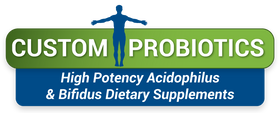
Reviewed by Saurabh (Seth) Sethi, MD MPH
Leaky gut syndrome is a digestive condition that affects the lining of the intestines. In leaky gut syndrome, gaps in the intestinal walls allow bacteria and other toxins to pass into the bloodstream. Many doctors and healthcare professionals do not recognize leaky gut syndrome (LGS) as a diagnosable condition.
However, current scientific evidence suggests leaky gut may contribute to a range of medical conditions. In this article, we discuss LGS, as well as its symptoms, causes, and risk factors. We also examine what current research says about leaky gut and autism. Finally, we cover potential treatments for leaky gut and provide tips for improving overall gut health.
What is leaky gut syndrome?
The gastrointestinal (GI) tract is a tube of connected organs that runs from the mouth to the anus. The organs of the GI tract include::
- the esophagus
- the stomach
- the small and large intestines
Digestive enzymes in the stomach and small intestine break down nutrients in food and drink into smaller molecules that the body uses for energy, growth, and repair.
The intestines also play an essential role in protecting the body from harmful bacteria and toxins.
Tight openings in the intestinal walls allow water and nutrients to pass through into the bloodstream while keeping harmful substances inside. In LGS, these openings become wider, allowing food particles, bacteria, and toxins to enter directly into the bloodstream.
Gut microbiota and leaky gut syndrome
The intestines are also home to a wide range of bacteria called gut microbiota. These bacteria aid digestion, protect the intestinal wall and support normal immune function. LGS may involve imbalances in gut microbiota.
According to a 2016 article, imbalances in the gut microbiota can trigger the body's immune response. This results in gut inflammation and increased intestinal permeability (IP). IP describes how easily substances can leak out of the intestines and into the bloodstream.
The link between LGS and other health conditions
Leaky gut may contribute to several health conditions. Examples include:
- irritable bowel syndrome (IBS)
- Crohn's disease
- celiac disease
- chronic liver disease
- diabetes
- food allergies and sensitivities
- polycystic ovary syndrome
It is still not clear whether LGS is a cause or a symptom of these conditions.
However, a 2015 review article suggests that increased IP may contribute to the development of inflammatory bowel disease (IBD). A separate 2019 review shows evidence of IP occurring before the onset of type 1 diabetes.
Scientists have also been investigating the gut-brain axis. This is the relationship between the GI tract and the brain. A 2017 review suggests that leaky gut may contribute to mental health conditions, such as anxiety and depression. However, scientists need to carry out further research to support this claim.
Symptoms
Leaky gut shares many of its symptoms with other health conditions. This can make the condition difficult for doctors to identify.
Leaky gut may cause or contribute to the following symptoms:
- chronic diarrhea, constipation, or bloating
- nutritional deficiencies
- fatigue
- headaches
- confusion
- difficulty concentrating
- skin problems, such as acne, rashes, or eczema
- joint pain
- widespread inflammation
Causes and risk factors
Experts do not yet know exactly what causes leaky gut syndrome. However, various risk factors can disrupt the gut microbiota and contribute to increased IP. Examples include:
- poor nutrition
- alcohol consumption
- infections
- autoimmune disorders, such as lupus
- diabetes
- stress
Is there any link with autism?
Experts still do not know exactly why autism develops. However, scientists have suggested that various genetic, biological, and environmental factors may play a role.
Recently, scientists have begun investigating a possible link between gut microbiota, IP, and autism.
Gut microbiota and autism
According to a 2016 review, autistic children often develop significant digestive problems, such as constipation, diarrhea, and vomiting.
In a small 2017 study, researchers compared stool samples from two groups of children — autistic children with GI symptoms, and those without autism or GI symptoms. The researchers identified significantly higher amounts of Clostridium perfringens bacteria in samples collected from autistic children with GI symptoms.
Intestinal permeability and autism
In a 2019 review, researchers confirmed an association between gut microbiota imbalances and autism.
A 2010 study observed increased IP in autistic people and their first-degree relatives. However, a 2013 study reported no significant differences in the IP of autistic children.
Scientists must carry out more research to establish whether IP plays a role in autism.
Treatment and improving gut health
Since many doctors do not consider leaky gut to be a legitimate medical condition, there is no standard treatment.
However, certain dietary and lifestyle changes may help people to improve their gut health. This, in turn, may alleviate leaky gut symptoms.
The following dietary tips may help to improve gut health:
- eating more probiotics to boost beneficial gut bacteria
- eating foods rich in prebiotic fiber, such as vegetables and whole grains
- eating less meat, dairy, and eggs
- avoiding added sugar and artificial sweeteners
The following lifestyle changes can improve digestion and support a healthy gut:
- exercising regularly
- getting enough sleep every night
- reducing stress
- avoiding unnecessary use of antibiotics
- quitting smoking
Summary
LGS creates gaps in the intestinal walls that allow harmful bacteria and toxic substances to escape into the bloodstream.
Researchers have found significant evidence to support the existence of leaky gut. Research also indicates that leaky gut may contribute to a range of health conditions.
However, scientists have yet to uncover how leaky gut directly contributes to the progression of these diseases.








































